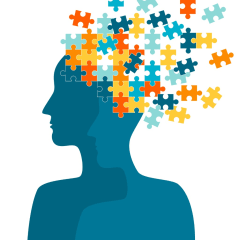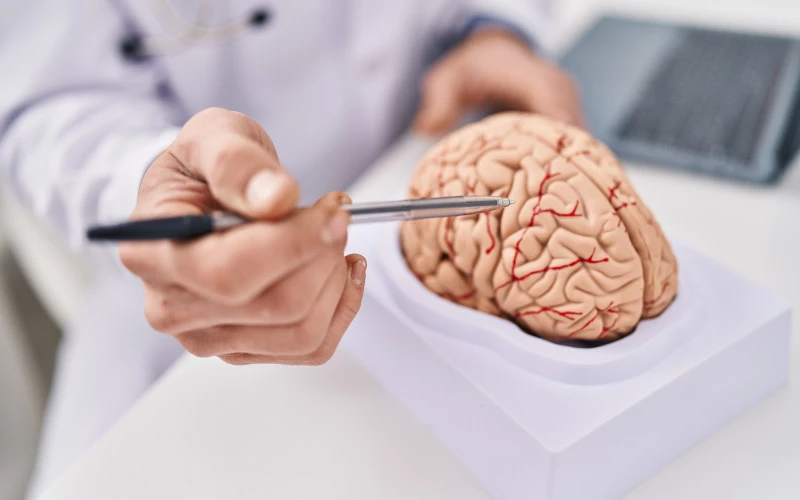The Role of Psych Therapy in Handling Anxiousness and Depression
Psychiatric therapy has emerged as a cornerstone in the management of anxiousness and anxiety, using tailored treatments that range from Cognitive-Behavioral Treatment (CBT) to mindfulness-based methods. These methods not only help individuals in identifying and restructuring adverse thought patterns yet likewise foster present-moment awareness, minimizing the tendency to ruminate. As we explore the different measurements of psychiatric therapy, it becomes noticeable that these methods do more than simply reduce signs; they substantially enhance psychological law and social skills - Best Psychologist in Delhi. What remains to be analyzed is just how these therapeutic approaches can be successfully tailored to meet specific requirements, thereby enhancing their influence.
Comprehending Stress And Anxiety and Clinical Depression
Understanding anxiety and anxiety requires a detailed check out these widespread psychological health problems, which frequently coexist and considerably influence a person's every day life. Anxiousness is defined by persistent, extreme concern and are afraid regarding day-to-day circumstances. Signs and symptoms consist of uneasyness, quick heart rate, and trouble concentrating. Conversely, clinical depression materializes as a pervasive sensation of hopelessness, sadness, or emptiness, commonly accompanied by a loss of rate of interest in formerly delighted in tasks, adjustments in hunger, and sleep disruptions.
The conjunction of stress and anxiety and depression can worsen symptoms and complicate medical diagnosis and treatment. Individuals dealing with both problems may experience a lot more severe symptoms, better impairment in occupational and social performance, and a much longer duration of ailment. This comorbidity necessitates a nuanced understanding and approach to treatment.
Neurobiological elements such as neurotransmitter inequalities, hereditary predispositions, and ecological stress factors contribute to the advancement and maintenance of these problems. Cognitive patterns like negative reasoning and maladaptive behaviors can bolster these problems. Understanding the elaborate interplay of these variables is essential for reliable treatment. Comprehensive analysis by psychological wellness specialists is necessary to discern the existence and level of these problems, paving the way for tailored restorative methods.
Kinds of Psychotherapy
Psychotherapy, also called talk treatment, incorporates a selection of therapy methods developed to alleviate symptoms of anxiousness and clinical depression by dealing with the underlying emotional and emotional concerns. Various sorts of psychotherapy are tailored to fulfill the unique needs of people, supplying a series of methods to psychological healthcare.
One commonly made use of form is psychodynamic therapy, which concentrates on understanding and fixing unconscious disputes originating from early life experiences. By checking out these deep-rooted problems, individuals get insight right into their present habits and emotion.
Interpersonal Treatment (IPT) is another reliable technique that focuses on improving interpersonal relationships and social operating to reduce depressive signs and symptoms. It generally attends to problems such as sorrow, role changes, and social disagreements.
Humanistic therapies, such as Client-Centered Therapy, emphasize personal development and self-actualization. Best Psychologist in Delhi. These approaches develop a supportive environment where individuals can discover their feelings and create a more powerful sense of self
Last But Not Least, Dialectical Behavior Treatment (DBT) incorporates cognitive-behavioral strategies with mindfulness practices. Initially created for borderline personality problem, DBT has actually been adjusted to deal with anxiousness and clinical depression by training skills in distress resistance, emotional guideline, and interpersonal effectiveness.
These varied psychotherapeutic techniques offer several pathways to psychological health and wellness and wellness, dealing with specific choices and therapeutic demands.
Cognitive-Behavioral Treatment (CBT)
Among the numerous psychotherapeutic modalities, Cognitive-Behavioral Therapy (CBT) attracts attention for its structured, ambitious method in treating anxiousness and depression. Established by Aaron T. Beck in the 1960s, CBT is based on the principle that maladaptive thinking patterns add significantly to psychological distress and behavior concerns. By determining and restructuring these unfavorable thought patterns, CBT aims to relieve signs and foster much healthier cognitive processes.
The treatment incorporates a selection of strategies, including cognitive restructuring, direct exposure treatment, and behavior activation. Cognitive restructuring focuses on challenging and changing altered more info here cognitions, while exposure treatment progressively adapts clients to anxiety-provoking stimuli, lowering avoidance habits.
Empirical proof emphasizes the effectiveness of CBT, with countless studies showing its performance in lowering signs and symptoms of stress and anxiety and clinical depression. This restorative technique has been adapted for various populaces and settings, proving functional and versatile. Its organized nature, empirical assistance, and concentrate on skill procurement make CBT a keystone in the psychotherapeutic treatment of stress and anxiety and anxiety.
Mindfulness-Based Strategies
Mindfulness-Based Methods have garnered significant interest recently as reliable treatments for anxiety and depression. Rooted in ancient reflection techniques, these techniques intend to cultivate an increased recognition of today minute, which can assist individuals disengage from the ruminative thought patterns often linked with anxiousness and depressive disorders.

Likewise, Mindfulness-Based Cognitive Treatment (MBCT) incorporates principles from Cognitive-Behavioral Treatment (CBT) with mindfulness strategies. MBCT is specifically reliable in preventing regression in individuals with recurrent anxiety. By identifying very early warning indications of depressive episodes, individuals educated in MBCT can apply mindfulness techniques to minimize the beginning of full-blown episodes.
Benefits of Psychotherapy
Many studies have actually shown the extensive advantages of psychiatric therapy for individuals grappling with anxiousness and clinical depression. Psychiatric look at here now therapy outfits patients with coping techniques to handle traumatic feelings, therefore lowering signs and symptoms of anxiety and anxiety.
In addition, psychotherapy gives an organized environment for self-exploration and understanding. By discussing their experiences and feelings with an experienced specialist, individuals can discover underlying concerns contributing to their mental wellness battles. This self-awareness is a critical step toward long-term healing and resilience.
Another significant benefit is the enhancement of social abilities. Stress and anxiety and anxiety often stress connections, resulting in isolation. Through restorative treatments, patients discover reliable interaction and conflict-resolution skills, which can improve their communications and foster supportive connections.
Furthermore, psychiatric therapy supplies a customized technique to treatment. Specialists can adjust methods to meet the distinct requirements of each patient, ensuring an individualized treatment strategy. This personalization boosts the efficiency of therapy, advertising continual mental health enhancements. Ultimately, the advantages of psychiatric therapy extend beyond signs and symptom relief, adding to total well-being and top quality of life.

Verdict
Psychotherapy significantly adds to the management of anxiety and depression by supplying efficient coping methods and a secure environment for self-exploration. Techniques such as Cognitive-Behavioral Treatment (CBT) and mindfulness-based strategies contribute in recognizing and restructuring negative idea patterns, while advertising present-moment recognition. These customized treatments not just minimize signs however additionally enhance psychological policy and social abilities, therefore improving general well-being and lifestyle for people dealing with these psychological health challenges.
Psychiatric therapy has actually arised as a keystone in the management of anxiousness and anxiety, supplying you could try here tailored treatments that range from Cognitive-Behavioral Therapy (CBT) to mindfulness-based strategies.Comprehending anxiousness and depression requires a detailed look at these common psychological health conditions, which commonly coexist and substantially influence an individual's everyday life.Amongst the different psychotherapeutic modalities, Cognitive-Behavioral Treatment (CBT) stands out for its organized, ambitious strategy in treating stress and anxiety and clinical depression.Many research studies have actually shown the profound benefits of psychiatric therapy for individuals grappling with anxiety and clinical depression. Psychiatric therapy gears up people with coping strategies to take care of distressing feelings, thereby decreasing signs of anxiousness and depression.